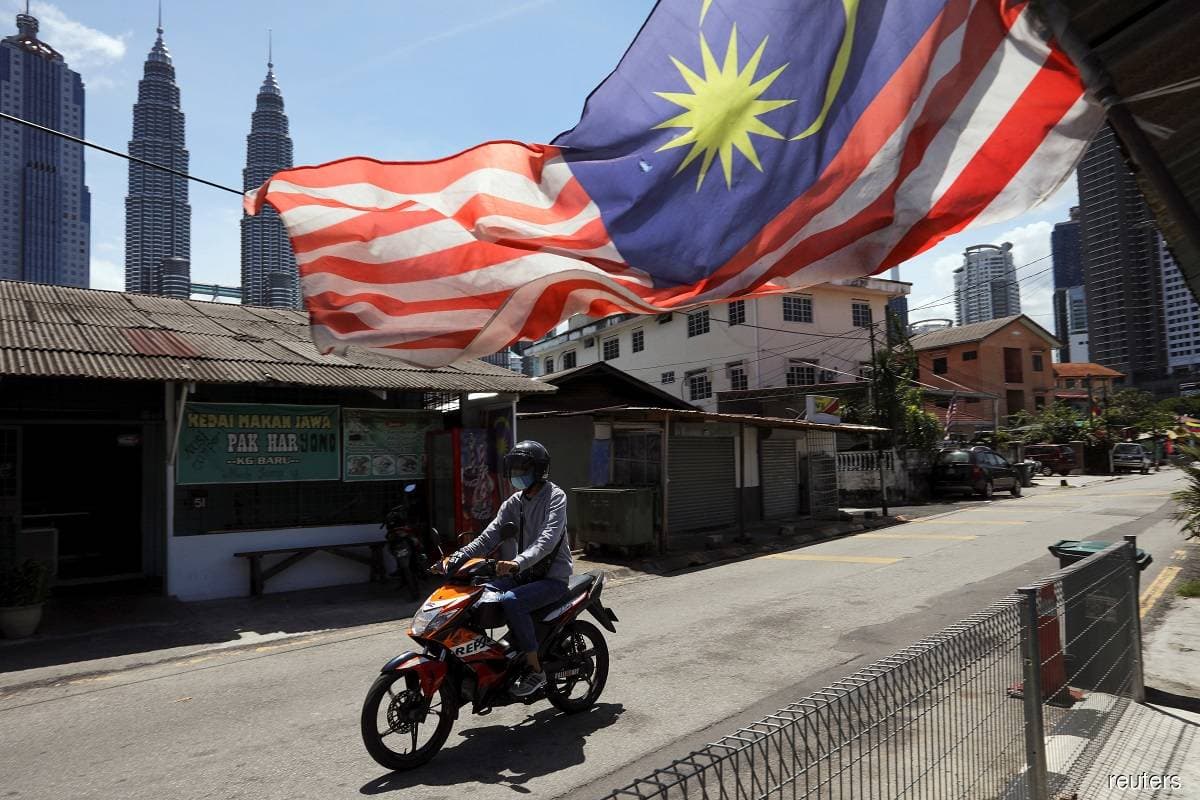
KUALA LUMPUR (Jan 25): Malaysia dropped five spots to rank 62 in the global rankings of Transparency International Malaysia's (TI-M) Corruption Perceptions Index (CPI) 2021, marking the second consecutive year that the country has seen a decline in the rankings.
During a briefing on Tuesday, TI-M president Dr Muhammad Mohan said Malaysia's score fell below the 50-point mark to 48 for 2021, from 51 and 53 in 2020 and 2019 respectively.
The CPI uses a scale of zero to 100, with lower scores indicating higher corruption.
A total of 180 countries and territories were scored, with two-thirds of countries scoring below 50. The global average CPI score stood at 43.
Among the ASEAN countries, Malaysia ranked third after Singapore (score of 85) and Brunei (score of 60). Notably, Singapore was the only Asian country to make it to the top 10, ranking fourth after Denmark, Finland and New Zealand.
Meanwhile, among selected Islamic countries, Malaysia ranked sixth after the UAE, Qatar, Brunei, Oman and Saudi Arabia.
"We need to be very concerned about our declining CPI score. With reforms coming though, we can improve our scores, and for a start, we should be aiming for above 50 points," said Muhammad.
He highlighted several reasons that could be the factors behind Malaysia's declining score, including the stall in institutional reforms.
"The last four governments have lacked political will to table the Political Financing Bill. As a result, money politics is still rampant, both during elections and as a scheme for corruption.
"The proposed IPCMC (Independent Police Complaints and Misconduct Commission) Bill was revised to a watered down, ineffective bill. There also has been no progress on reforms to the Malaysian Anti-Corruption Commission (MACC), which were recommended in 2015," he said.
Muhammad also pointed out the acquittals or discharges not amounting to acquittal to high profile personalities in several corruption cases with no clear clarification from the Attorney General's office, the suspension of parliament during the Movement Control Order and the continued lack of political will from various administrations in fighting institutional corruption.
Besides that, other factors included the appointments of politicians without experience to head government-linked companies and government-linked investment companies, lack of progress on amendments to the Whistleblowers Protection Act 2010, as well as the continued adverse findings and repeated governance failures observed in the Auditor General's annual report.
On the other hand, TI-M lauded the positive developments so far, including the memorandum of understanding between the government and Pakatan Harapan which included the reduction in the minimum voting age to 18, automatic voter registration, Malaysia Agreement 1963, Anti-Hopping Law or recall elections, parliamentary reforms and limiting the tenure of the prime minister to 10 years.
It also viewed positively the judicial independence displayed in ongoing corruption cases.
To improve Malaysia's CPI score, the non-profit made several suggestions including narrowing the scope of the Official Secrets Act, so that matters of public interest such as directly negotiated contracts can be released, while only matters related to national security are protected.
It also mooted for a platform which provides regular updates on the status of pending high profile cases, as well as a public dashboard to monitor the implementation of and disclose progress of the National Anti-Corruption Plan (NACP).
The MACC also has to be reformed into truly independent, reporting directly to parliament, recommended TI-M, while public officials found guilty of corruption should be compelled to vacate their official positions, even while they are going through the appeal process.
"TI-M also urgently calls for full implementation of the NACP, acceleration of the tabling of the Political Financing Act, the independence and transparency of key institutions like the MACC and the Attorney General's Chambers, an anti-hopping law to stop party hopping, implementation and empowerment of Undi 18, and the enactment of parliamentary reforms," said Muhammad.
Looking ahead, he said the public must play its role in calling out corruption — not only by protesting but also communicating through social media — and added that there must be space for the people to speak up.
"The rakyat needs to be the eyes and ears. If there is wrongdoing, it should be exposed. That is how it is. The public has to play a part in this.
"I am appealing to everyone. We need to say no to corruption. Our country must be known for its integrity, not for its corruption," said Muhammad.